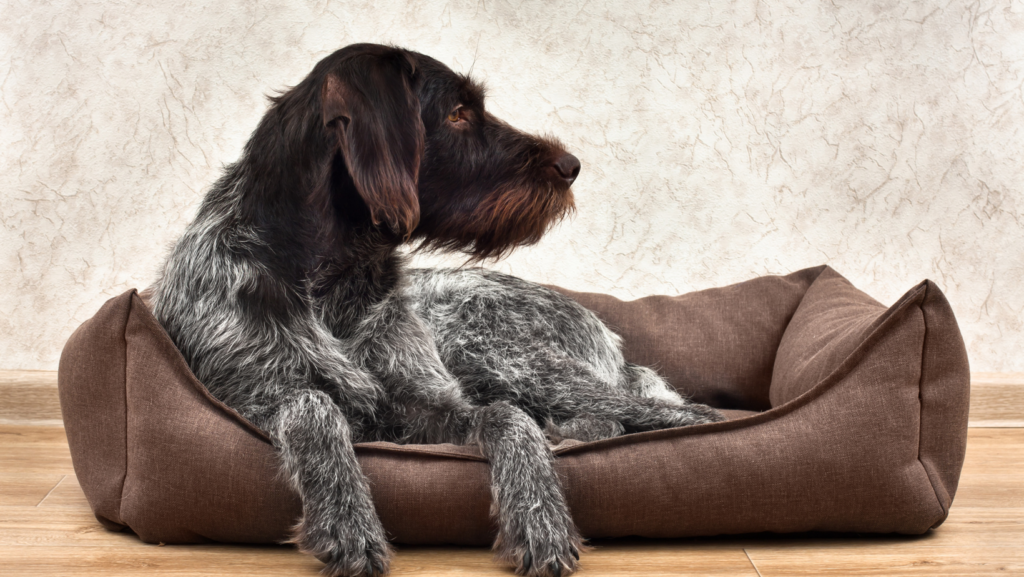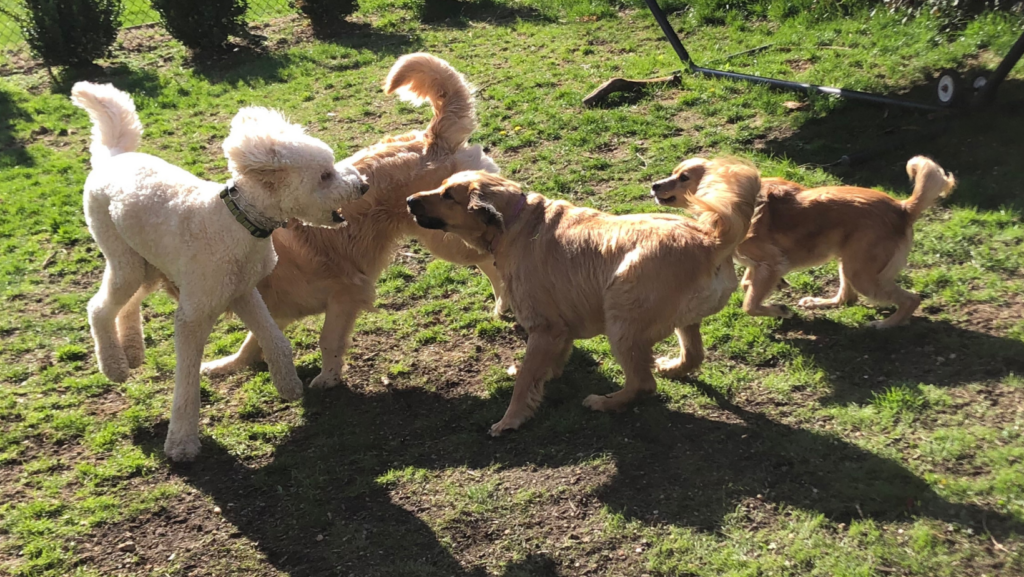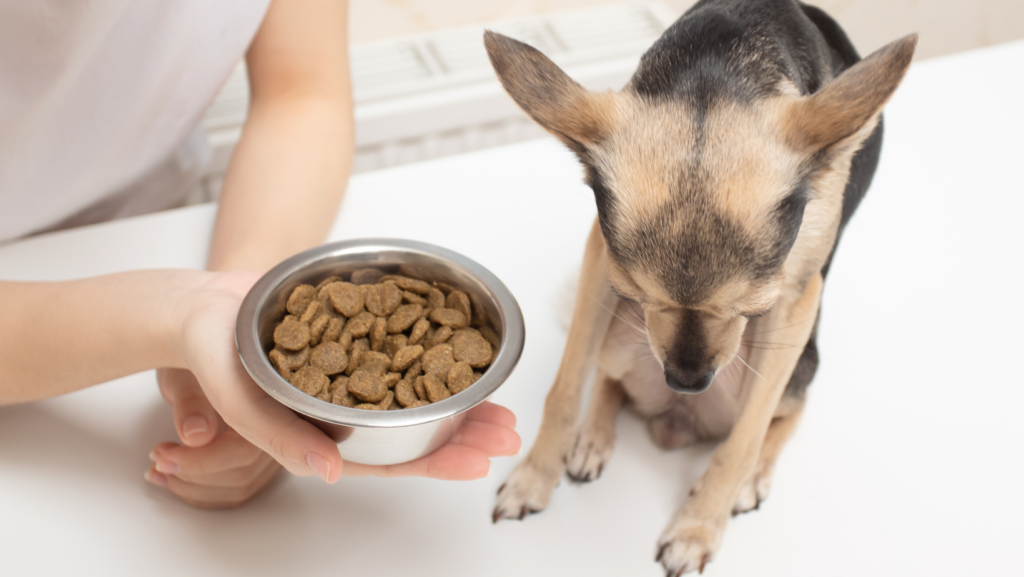It’s that time of year again! Hot summer days, weekends up the canyon…and fireworks season. I LOVE fireworks! And luckily, here in Utah, there are plenty to go around.
However, your dog is probably not as enthusiastic as you about fireworks. In fact, some dogs are downright terrified.
By the time fireworks season comes around sometimes it’s a little late to start helping your dog past their fear. It takes time to overcome a fear, and since we are 3 days away from Summerfest here in Orem, you might not be able to do much in the way of prevention.
So here are 2 tips to help your pup when the summer festivities kick off.
- Crate your pup
This may sound a little heartless as your first reaction is to cuddle your fur baby when they are scared. However, crating your dog serves 2 purposes. It prevents your dog from running away. The biggest day of the year for animal shelters is July 5th, the day after the Fourth of July and fireworks. Your dog can’t run away if they are in their closed crate. Secondly, it gives the dog a safe space. Dogs seek out small, enclosed spaces when they are nervous. They are den animals and small spaces bring them comfort.
Believe it or not, comforting your pup does not help them. Unknowingly, you are praising them for their scared behavior and reinforcing their fear. Letting them work through their fear in the crate looks messy (shaking, whining), but it does more good to let them work through their fear than reinforcing their scared state of mind.
- You, as the owner, need to relax
As the leader of your home your dog looks to you. They read your behavior and then interpret how they should be acting as well. If you are jumping at every sound, worrying anxiously about your pup, or are stressed in any way, your dog will follow your behavior. Dogs are pack animals and look to a leader to determine how they should think and feel. Take a deep breath, do some yoga, read a good book, do whatever relaxes you, and your dog will follow suit…or at least your dog’s fear won’t be exacerbated
Now, sometimes a dog’s fear is so far advanced and overwhelming that nothing is going to help in the way of managing the fear. Unfortunately, this article is probably not going to help much.
The good news is it’s possible to help your dog through their fear. You will need to put some time and energy into acclimating your dog to fireworks over a longer period of time. Please feel free to contact me with any questions.
Good luck this fireworks season, and enjoy the warm summer days with your pup!
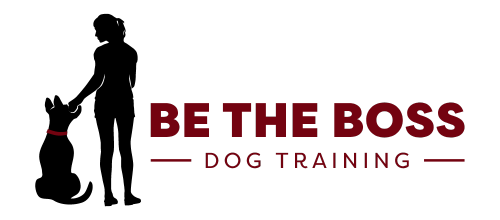
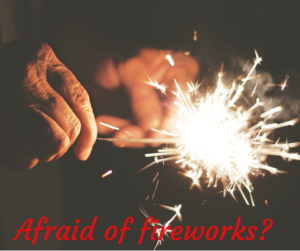
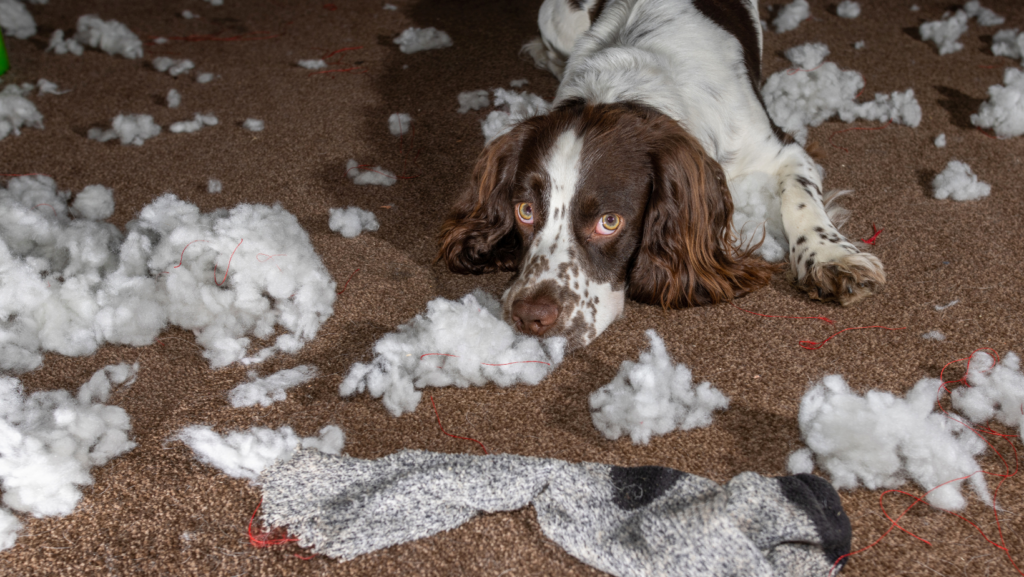
 Click to read why your dog’s “bad behavior” might actually be a cry for help.
Click to read why your dog’s “bad behavior” might actually be a cry for help.